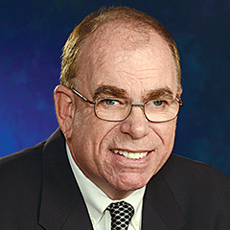
As McKnight’s Senior Living recently reported, LeadingAge will announce a replacement term for the continuing care retirement community concept during its upcoming convention.
The soon-to-be-released moniker follows years of introspection and numerous surveys about the best way to brand this unique approach to seniors housing and care.
But why stop there? The reality is that more than a few terms commonly used in these parts seem to be past their expiration date.
Let’s start with assisted living. Yes, it was a great marketing term when it essentially meant an un-nursing home. But hey, times have changed. Besides, why remind potential customers they need assistance?
Already, a slew of operators have rebranded themselves with descriptors that either replace or expunge the old term. Even the organization that represents such operators recently updated its business card. What was once the Assisted Living Federation of America is now Argentum. For those of you keeping score at home, that’s Latin for silver.
Then there’s the changing role of what were once called nursing homes. In recent years, operators in this field generally have described themselves as long-term care facilities. Even the federal government has abandoned the nursing home term, in favor of skilled care. These days, it’s a pretty rare facility that has kept “nursing home” in its title. What you are far more likely to find is signage that includes “rehabilitation.” Or something that conjures up a vaguely idyllic setting. Think “Arbors at the Glen,” or something even more saccharine.
And as residents’ average lengths of stays get trimmed to less than a month, some are questioning whether a phrase like “long-term care” still belongs in the conversation. In fact, many skilled care settings are essentially in the business of taking in patients with stabilized conditions on whom hospitals are done working. That helps explain why we’re seeing a cottage industry of new terms like transitional care, subacute care and post-acute care, just to name a few.
As for “senior living,” the phrase seems to be experiencing an identity crisis. Is it simply a new way to say assisted living, or is it an all-encompassing term that can be applied to any setting on the continuum? Depends who you ask.
The reality is that the housing and healthcare landscape for the argentum-haired set is anything but static. In many cases, terms that seemed perfectly acceptable a few years ago now seem clunky, or worse.
So where will the re-monikerization end? The short answer: not soon. As long as new approaches and frightened marketers remain in our midst, the labels are likely to keep changing. Even when the new titles identify a distinction without a difference.



